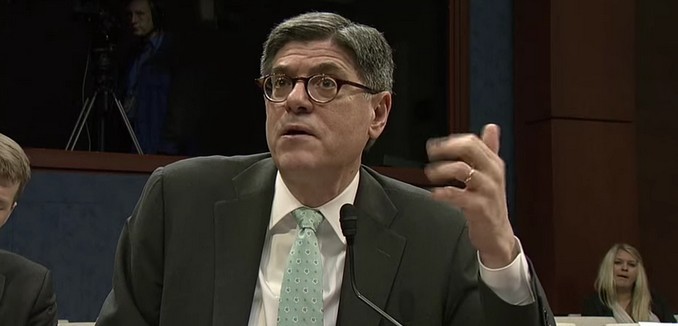In a presentation last week at the Washington Institute for Near East Policy, Treasury Secretary Jack Lew failed to convince skeptics of the emerging nuclear deal with Iran that the deal would prevent Iran from developing nuclear weapons or discourage its destabilizing behavior in the Middle East, Josh Rogin of Bloomberg Views reported today.
In particular, Lew’s remarks about how the administration intends to lift sanctions raised questions among the experts listening.
According to Rogin, Lew “also claimed that most of the sanctions, including multilateral sanctions, could be snapped back into place if Iran cheated, and … argued that giving Iran tens of billions of dollars in cash won’t dramatically increase Iran’s spending on terrorism and other nefarious activities.”
However, Matthew Levitt, a former Treasury Department official and the Director of the Stein Program on Counterterrorism and Intelligence at the Washington Institute, argued that despite the administration’s assurances of being able to snap sanctions back into place, “once sanctions are suspended, especially the multilateral sanctions, there’s no easy way to put them back into place.”
“No one should be fooled into thinking there will be any automaticity here. If we thought Iran was cheating, the debate then moves to whether there was in fact a violation. You can see a situation where Russia and China will dispute whether there is in fact a violation,” Levitt added.
Another aspect of Lew’s remarks that raised concerns among policy experts was his assertion that the administration would continue sanctioning only the Islamic Revolutionary Guard Corp (IRGC) Qods Force, which suggested that it was looking to suspend sanctions against non-Qods Force leaders of the IRGC. Currently, the IRGC “is sanctioned for both proliferation and human rights violations and controls as much of a third of the Iranian economy through shell companies in mining, banking and oil.”
The New York Times has described the IRGC as “run[ning] the military side of the nuclear program.” Iran claims that its nuclear program is for civilian purposes only.
Vice President Joe Biden also spoke at the Washington Institute, and asserted that the inspections regime created as part of a nuclear agreement would give the West “the ability to challenge suspect locations.” Rogin quoted former administration official Eliot Cohen who said, “Having the ability to ‘challenge’ suspect sites is not the same thing as getting access to them, which is the key thing.”
The problem with hidden Iranian nuclear sites was cited as a concern by former Director of Central Intelligence Gen. Michael Hayden, who told a Congressional hearing last November that “[t]here isn’t a neutron or an electron in Natanz that’s every going to show up in a nuclear weapon,” but that the fissile material Iran would use for a bomb would be from a hidden site.
[Photo: Roll Call / YouTube ]




